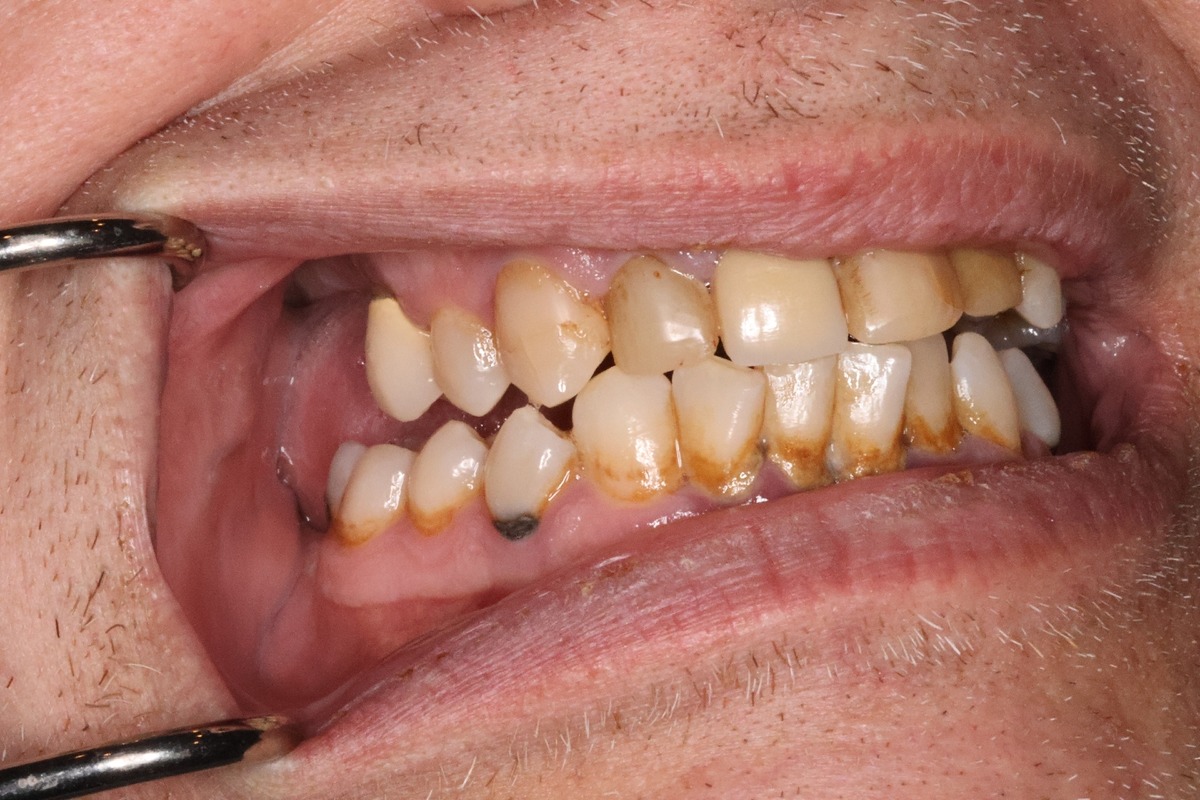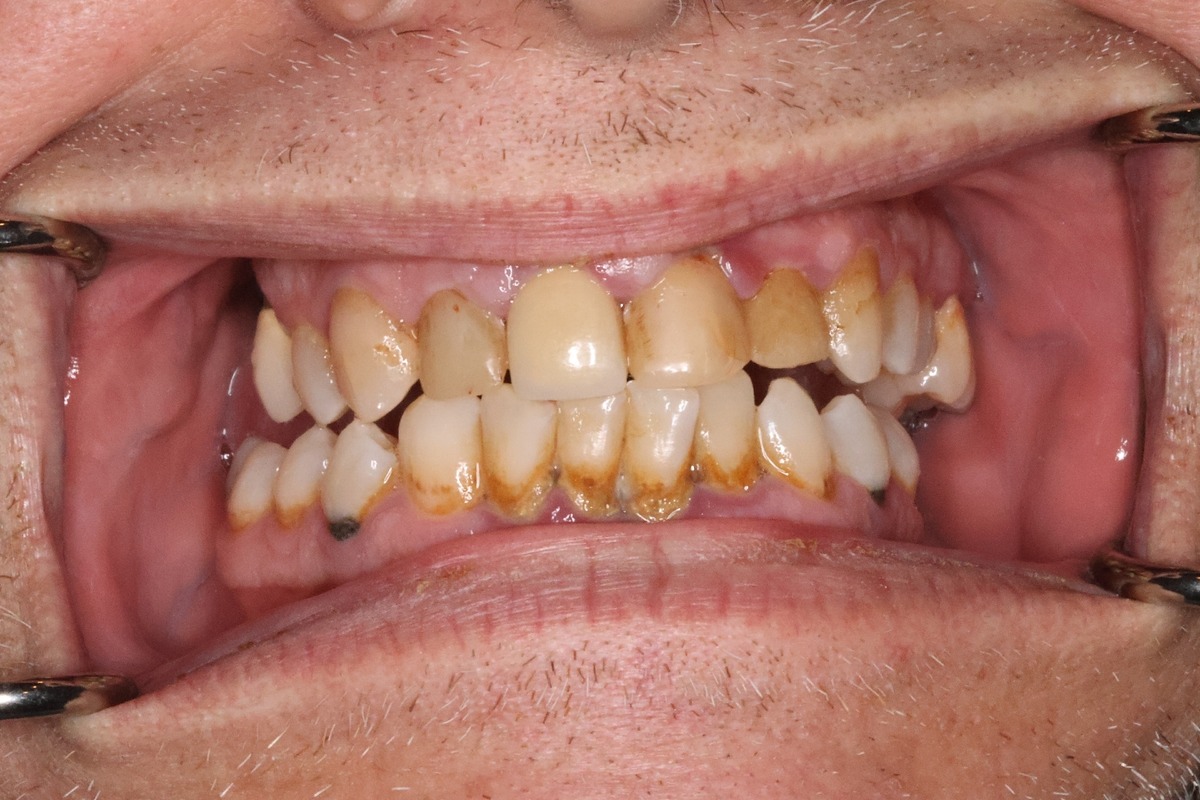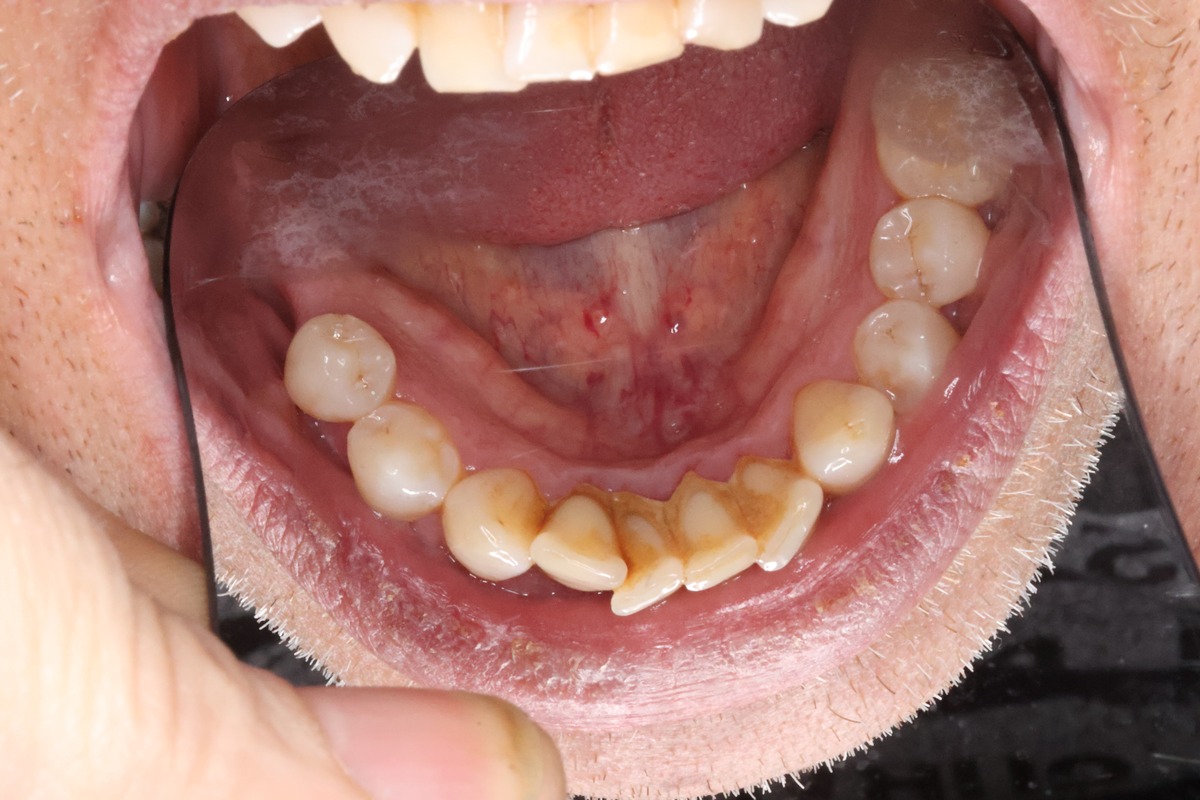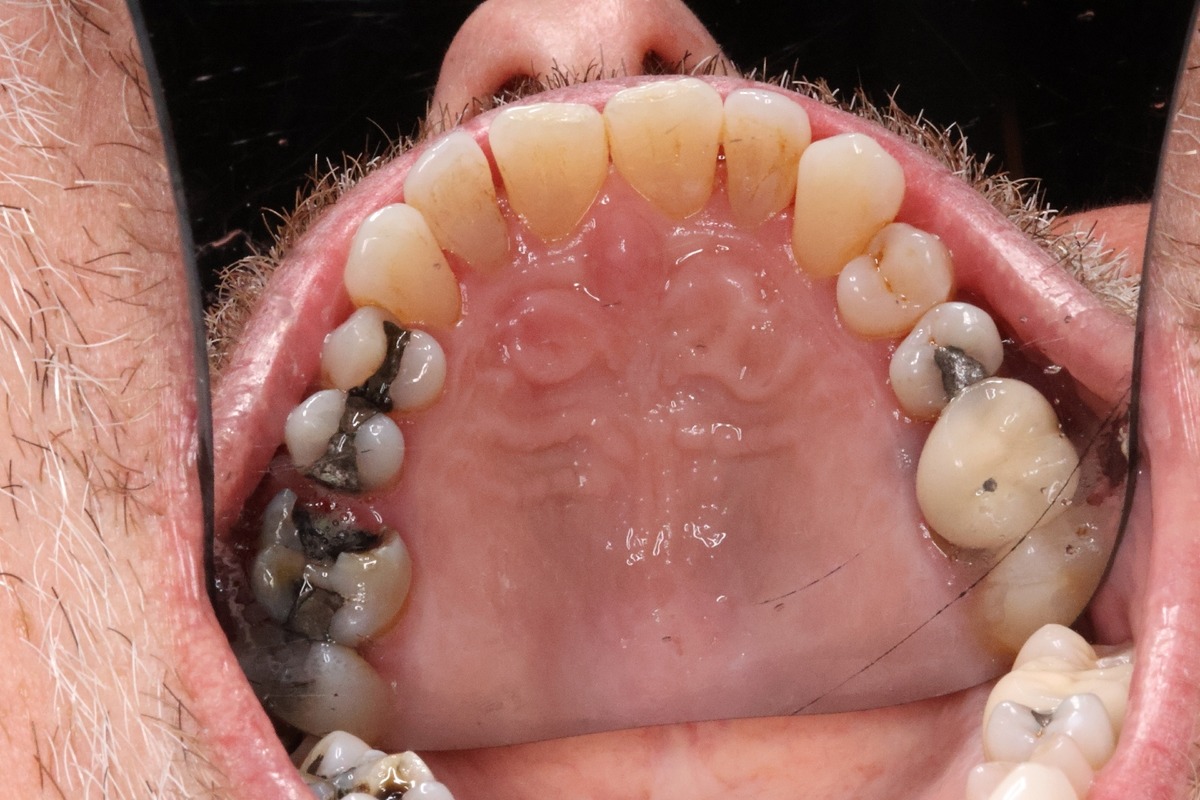Why Do My Gums Bleed When I Floss?
Are you noticing that your gums bleed when flossing? You’re not alone! Every year, thousands of people experience this, so it’s important to educate yourself on this topic to maintain healthy gums, protect your gum tissue, and preserve your dental health.
Common Causes of Bleeding Gums
You’ve probably been told by your dentist that flossing is essential for healthy teeth. But, maybe you’ve tried and noticed bleeding afterwards. What causes this? How can you prevent it? Well, it often comes down to technique, with beginners typically flossing too hard. Of course, it’s a pretty easy fix to just, you know, floss more gently. But, what are some other common causes?
1. Brushing and Flossing Technique
Many people think that brushing harder cleans their teeth better. In fact, nothing could be farther from the truth. Brushing too hard, or even using a toothbrush with worn bristles, can cause your gums to bleed. Always use a soft-bristled brush when brushing your teeth and, remember, you don’t need to press so hard that it irritates your gums.
2. Gingivitis or Poor Gum Health
Preventing gum disease is one of the primary goals of brushing your teeth. If plaque is allowed to build up along the gum line, it can result in swollen or tender gums, which can cause bleeding gums. This condition, called gingivitis or gum disease, can even evolve into periodontal disease, which can result in gum recession, bone decay, and tooth loss.
3. Blood Thinning Medications
Since they impede blood clotting, blood thinners can make you susceptible to bleeding gums. If you’re taking them for unrelated medical conditions, you’ll want to be aware that they can cause bleeding gums and adjust your oral hygiene routine accordingly. Again, be sure that you’re using a soft-bristled toothbrush or use a pressure-sensitive toothbrush like the Sonicare 4100.
4. Poor Nutrition or Diet
Processed foods and foods high in sugar can irritate your gums. Bacteria in your mouth thrive on sugar, then metabolize it into caustic acids that can weaken your gums, making it easier to damage them during regular flossing and brushing.
5. Pregnancy or Hormone Changes
Hormonal changes are one of the lesser-known causes of bleeding gums. Especially common during puberty, menopause, and pregnancy, these hormones can change how your gum tissue responds to plaque, bacteria, and other conditions. Additionally, they can cause swelling, which often causes gums to bleed when flossing.
6. Extreme Stress
Beyond common causes listed above, stress can be another factor. When we’re stressed, our immune system is weakened, which can make it harder to resist infections. And, if an infection takes root in the gums, it can cause swelling, redness, and – of course – bleeding.
Analyzing Your Flossing Routine
Flossing once in a while isn’t enough. Even if your technique is flawless, consistency is the key to healthier gums. Daily flossing helps remove plaque build up between the teeth and below the gumline: areas your toothbrush simply can’t reach. When left behind, that plaque hardens into tarter, which irritates gum tissue and increases your risk of inflammation, tooth decay, and gum disease.
If you’re skipping days, rushing through the process, or using the wrong floss, your efforts may not be as effective as you think. For best results, follow these tips:
- Use enough floss: 18-24 inches allows you to use a clean section for each tooth.
- Be gentle: Never force floss between your teeth. Glide it u0p and down along the toot’s curve and go beneath the gumline slightly.
- Flossing once a day: It doesn’t matter if it’s morning or night, what matters is consistency.
- Choose the right floss: Waxed floss is easier to slide between tight teeth, while tape-style floss is broader and flatter, ideal for wider gaps.
According to Oral-B, bleeding gums when flossing are often a sign of poor technique or inconsistent habits. Luckily, these are easy fixes with the right routine.
Also consider your oral tools. If traditional floss is tough for you to use, try a water flosser or pre-threaded floss picks. What matters most is that you find a method you’ll stick to. Improving your flossing routine can significantly reduce gum bleeding, boost overall hygiene, and prevent long-term dental issues.
Flossing and Gum Disease
Bleeding gums during or after flossing is often a red flag for gum disease, particularly gingivitis. This condition develops when plaque and tarter build up along the gumline, causing inflammation and irritation. Gingivitis often causes red, swollen gums that bleed easily during brushing or flossing.
Gingivitis can lead to some serious medical issues, so it’s important not to ignore early signs like bleeding. If left untreated, it can worsen into periodontitis, a more advanced stage of gum disease that can affect the tissues and bones supporting your teeth. Signs of this progression include gum recession, deep pockets between teeth, persistent bad breath, and eventually, tooth loss.
Flossing is one of the most effective tools for preventing this progression. By removing debris and bacteria from between the teeth, it helps reduce the inflammation that triggers gum disease to begin with. If you’re seeing blood every time you floss, it likely means plaque has already started irritating your gums and it’s time to pay closer attention to your oral care routine.
Bleeding Gums Remedies
If you experience bleeding gums, there are several effective strategies to improve your gum health. Of course, the easiest is to build a good daily routine. Use a soft-bristled toothbrush to gently clean your teeth twice daily, and incorporate daily flossing to remove plaque and food particles between teeth. Following brushing and flossing, rinse with an antibacterial mouthwash to reduce oral bacteria and inflammation. Repeating these three steps consistently will help to prevent bleeding gums.
If you want to take it to the next step, you could work to improve your diet. By consuming a balanced diet that is rich in vitamins and minerals, you can prevent bleeding gums ‘from the inside.’ In some severe cases, though, a deep cleaning from a dental professional might be necessary for long-term oral health.
Additional Options
- Saltwater rinse: Rinsing your mouth with a warm saltwater solution can soothe inflamed gums and reduce bacteria. Mix half a teaspoon of salt into a glass of warm water and swish it around your mouth for 30 seconds before spitting it out. Repeat this two to three times daily.
- Cold compress: Applying a cold compress to the outside of your mouth can help reduce gum swelling and bleeding, especially if caused by injury. Apply the compress for 15–20 minutes at a time.
- Nutritional support: A balanced diet rich in vitamins C and K supports gum health. Vitamin C aids in tissue repair and immune function, while vitamin K plays a role in blood clotting. Incorporate foods like citrus fruits, leafy greens, and broccoli into your meals.
- Green tea consumption: Drinking green tea may help reduce gum inflammation due to its antioxidant properties. Aim for two to three cups daily to support oral health.
- Avoid tobacco products: Smoking and the use of other tobacco products can impair gum health and exacerbate bleeding. Quitting tobacco use can significantly improve oral and overall health.
If bleeding persists despite these measures, consult your dentist. Professional treatments such as scaling and root planing may be necessary to address underlying gum disease and prevent further complications.
Need to Schedule Regular Dental Checkups?
Regular dental checkups are essential for maintaining oral health and catching early signs of gum disease. Professional dental cleanings remove stubborn plaque and tartar that brushing and flossing might miss.
At West Wind Dental, we’ve geared our dental practice in Portage, MI toward ensuring quality care and personalized service. Our team will work with you to promote a good oral hygiene routine, which can help you avoid issues like tooth decay, gum disease, and bleeding gums. By combining professional care with a solid daily routine, you’ll protect your gums and preserve your healthy smile.

Dr. Andrew Hamilton, DDS, FAGD
Dr. Hamilton is an active member of several professional organizations including the American Dental Association (ADA), the Michigan Dental Association (MDA), the Kalamazoo Valley District Dental Society (KVDDS), the American Academy of Implant dentistry (AAID), the International Academy of Facial Aesthetics (IAFA) and also attends courses with the Pikos Institute in Northwest Florida. He is a member of the International Congress of Oral Implantologists (ICIO), has achieved fellowship status in the International Dental Implant Association (IDIA) and in the Academy of General Dentistry (FAGD), has graduated from and is an alumnus of the Kois Center program in Seattle, and is on the faculty of the Global Dental Implant Academy (GDIA).
The little spare time left over is spent Steelhead and Salmon fishing and the occasional round of golf.




